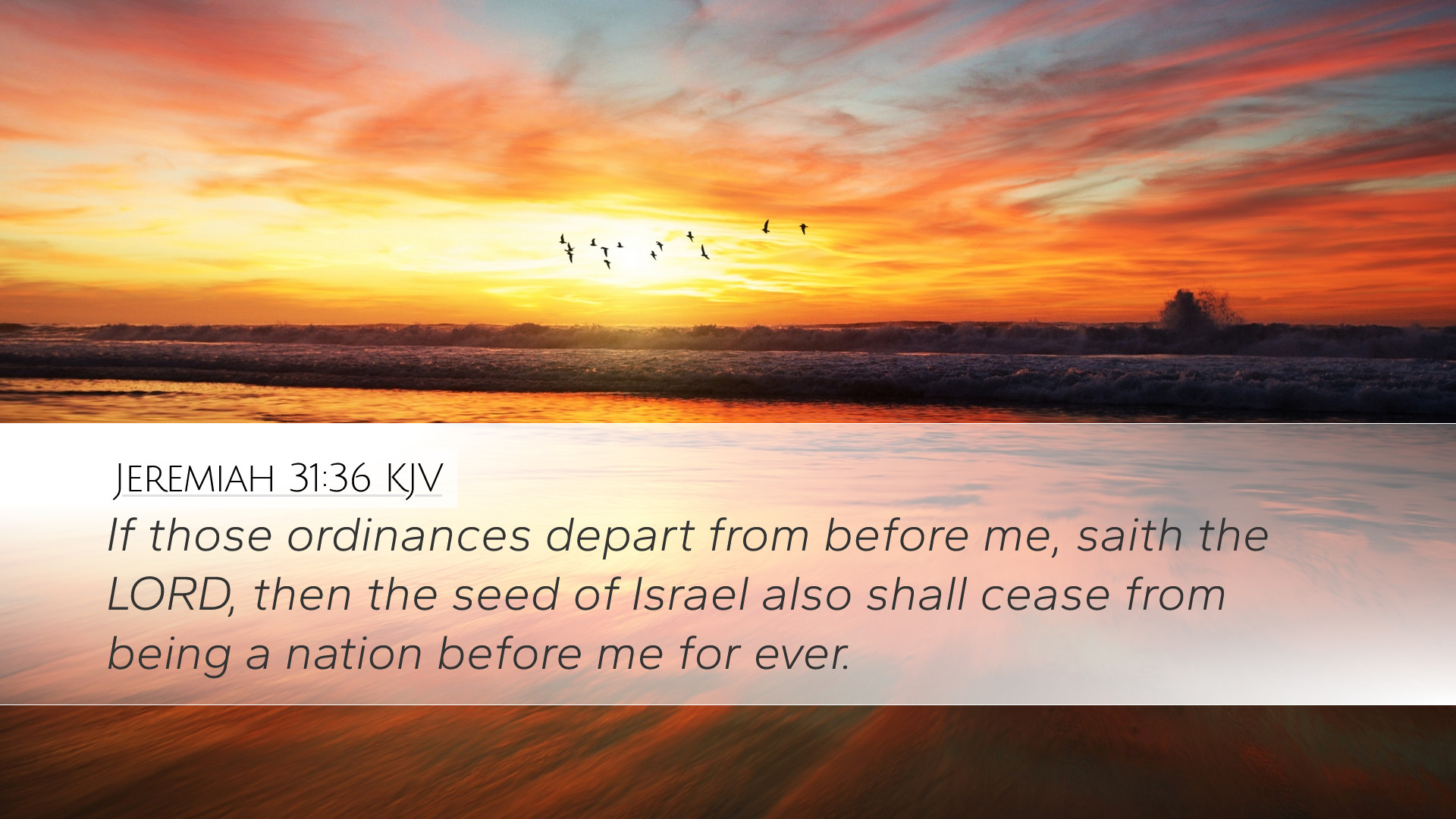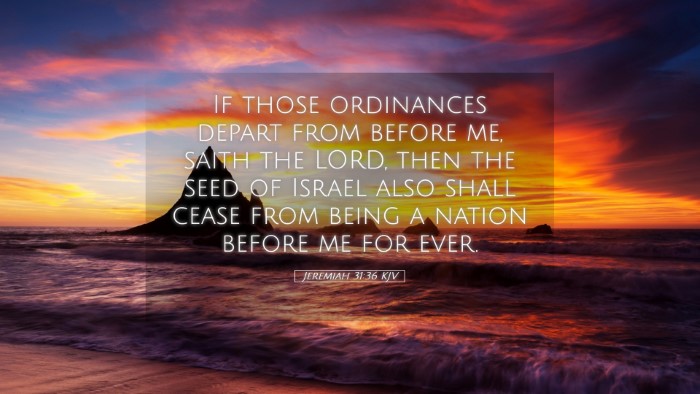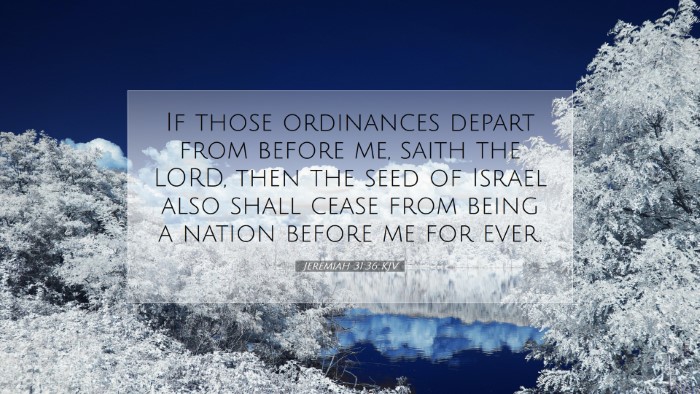Commentary on Jeremiah 31:36
Verse: "If those ordinances depart from before me, saith the Lord, then the seed of Israel also shall cease from being a nation before me for ever."
Introduction
This verse encapsulates a profound declaration from God regarding the enduring nature of His covenant with Israel. To better understand this passage, we draw insights from esteemed public domain commentators such as Matthew Henry, Albert Barnes, and Adam Clarke. Their reflections enable a deeper grasp of divine promises, the nature of God’s commitments, and the implications for future generations.
Theological Significance
Jeremiah 31:36 emphasizes that the sovereignty of God over the universe is reflected in His promises. The conditions mentioned in this verse serve to highlight the unbreakable nature of His covenant with Israel.
Matthew Henry’s Commentary
Matthew Henry elucidates the depth of God’s promise to Israel. He posits that just as the natural ordinances—such as day and night, or seasons—are established and remain unchanging, so too is God’s commitment to His people. Henry notes that the statement establishes the permanence of Israel’s identity as God’s chosen nation. He insists that God's faithfulness is as sure as the stability of the natural order.
Albert Barnes’ Perspective
Albert Barnes offers a more systematic exploration of the text. He affirms that this passage serves as an assurance of Israel’s survival as a nation. Barnes argues that God’s sovereignty means that despite the turmoil and challenges faced by His people, they will never face total extinction. He underscores that God uses such declarations to encourage faith and stability among the people, reflecting the conviction that their identity as a nation is secure in God's hands.
Adam Clarke’s Analysis
Adam Clarke expands on the divine promise by highlighting the covenantal aspect inherent in this cycle of judgment and restoration. He points out that, while Israel has often strayed, God’s unchanging purpose ensures their eventual reconciliation. Clarke maintains that the grandeur of the promise lies not only in God’s assurances but also in the purpose: Israel's calling to be a light to the nations. The reference to ordinances serves as a metaphor for the immutable laws governing both the universe and God’s relationship with His chosen people.
The Concept of Ordinances
The "ordinances" mentioned in the verse can be understood both as natural laws and as covenantal laws that God established with Israel. The permanence of these ordinances reflects God's unchanging nature.
- Natural Order: The cycles of nature and their reliability serve as a metaphor for God's faithfulness.
- Covenantal Faithfulness: God’s commitment to Israel parallels the reliability of His created order, suggesting that even in the face of disobedience, His promises hold firm.
Implications for Israel and Beyond
This verse not only speaks to the Israelites of Jeremiah's time but extends far beyond to modern understandings of identity and divine promise. The assurance given through Jeremiah remains a source of hope for many.
Hope Amidst Adversity
The context in which Jeremiah spoke these words was filled with despair, as the nation faced impending exile. However, the promise of continued existence as a nation instilled hope. Each commentator reflects on this interplay of judgment and grace, emphasizing that the existence of Israel was, and continues to be, a testament to God's promises.
Broader Theological Reflections
The implications of this verse extend to Christian theology as well, where the church often understands itself as a continuation or fulfillment of the promises to Israel. The New Testament writers, particularly Paul, refer to the identity of believers being intertwined with God’s unaltered covenantal faithfulness.
The Enduring Nature of God’s Promises
In concluding reflections, the profound truth that God’s commitments are as steadfast as the laws of nature assures believers of His unwavering presence and guidance throughout history. Jeremiah 31:36 stands as a pivotal reassurance of God’s fidelity, both to Israel and to all who seek refuge in His promises.
Conclusion
The commentary from Matthew Henry, Albert Barnes, and Adam Clarke collectively enriches the understanding of Jeremiah 31:36. It highlights God's immutable nature, His covenant faithfulness, and the enduring identity of His people. This understanding fosters a deeper sense of security and mission among believers, continuing to inspire faith in the God who holds all things firm.


